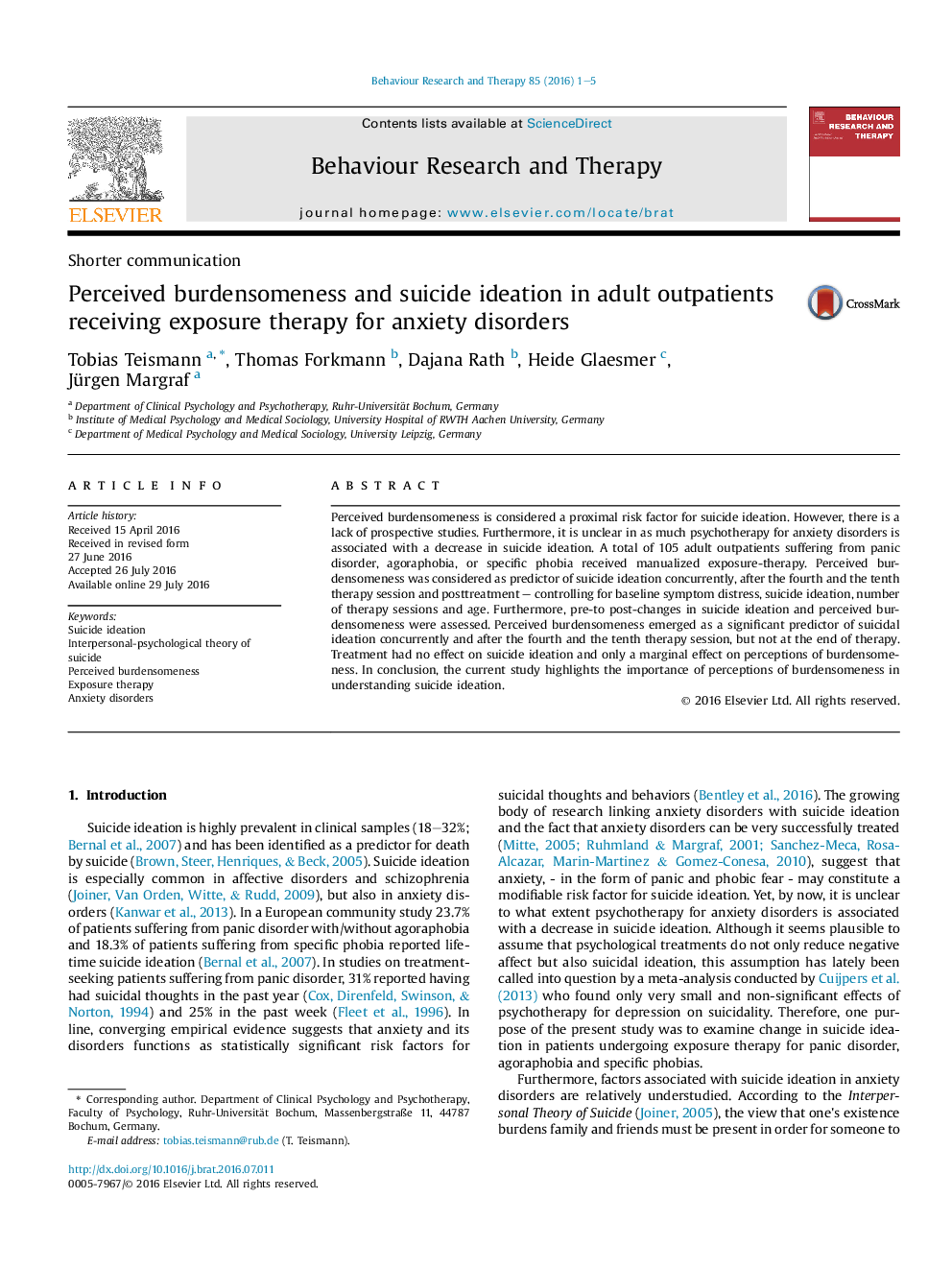| Article ID | Journal | Published Year | Pages | File Type |
|---|---|---|---|---|
| 901757 | Behaviour Research and Therapy | 2016 | 5 Pages |
•Burdensomeness is considered a proximal risk factor for suicide ideation.•Burdensomeness was found to prospectively predict suicide ideation.•Exposure-therapy had no effect on suicide ideation.•Results highlight the importance of burdensomeness in understanding suicide ideation.
Perceived burdensomeness is considered a proximal risk factor for suicide ideation. However, there is a lack of prospective studies. Furthermore, it is unclear in as much psychotherapy for anxiety disorders is associated with a decrease in suicide ideation. A total of 105 adult outpatients suffering from panic disorder, agoraphobia, or specific phobia received manualized exposure-therapy. Perceived burdensomeness was considered as predictor of suicide ideation concurrently, after the fourth and the tenth therapy session and posttreatment – controlling for baseline symptom distress, suicide ideation, number of therapy sessions and age. Furthermore, pre-to post-changes in suicide ideation and perceived burdensomeness were assessed. Perceived burdensomeness emerged as a significant predictor of suicidal ideation concurrently and after the fourth and the tenth therapy session, but not at the end of therapy. Treatment had no effect on suicide ideation and only a marginal effect on perceptions of burdensomeness. In conclusion, the current study highlights the importance of perceptions of burdensomeness in understanding suicide ideation.
